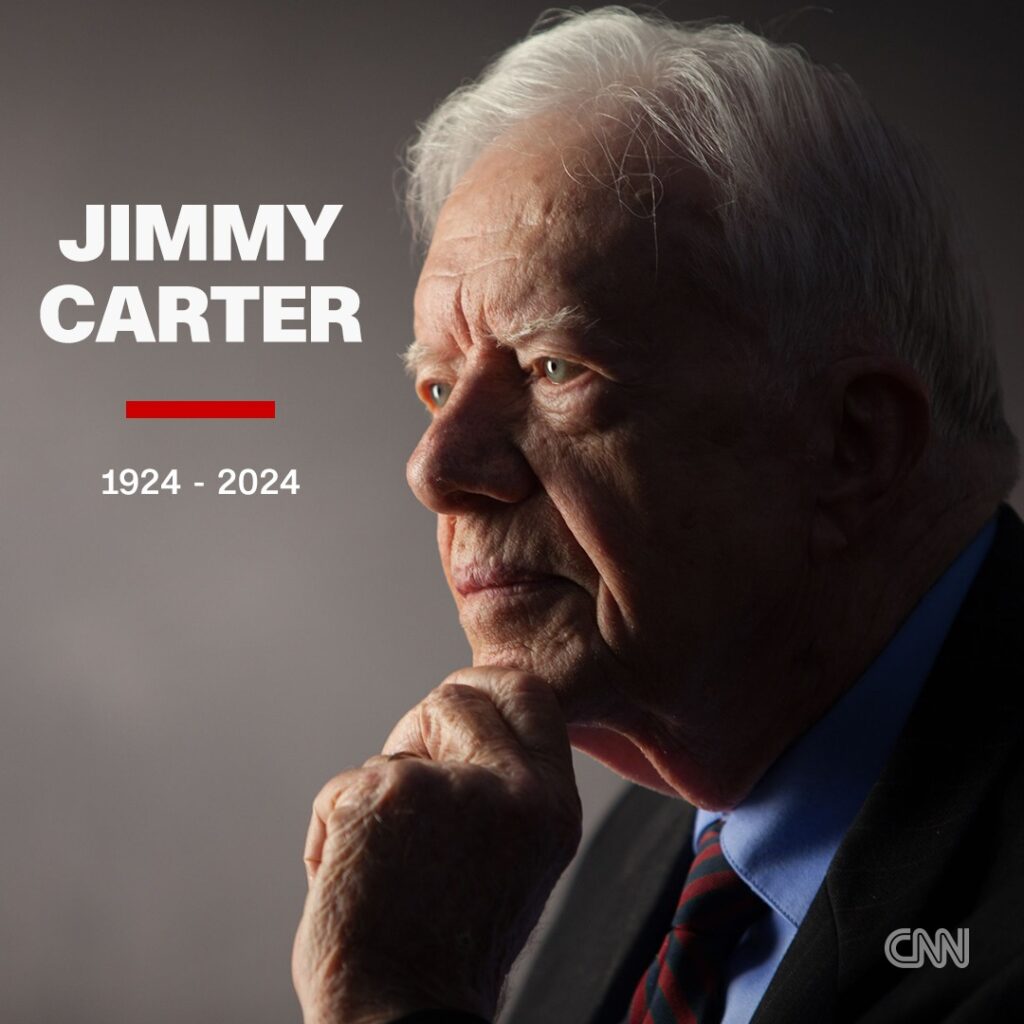By Emmanuel Nwagboniwe
After a protracted battle with cancer, the sun set yesterday for one of the world’s most impactful leaders in recent history, Jimmy Carter, the 39th president of the United States(U.S) ,as he passed at the ripe age of 100 years
Carter’s demise was announced Sunday by the Atlanta Journal-Constitution.
His death is coming about six weeks after the passing of his wife Rosalynn on Nov. 19, 2023 at the age of 96 years
The late former president himself had entered hospice care in February 2023. Carter survived for years after he had a “small mass” removed from his liver in early August 2015 and later that month announced he had liver cancer that had spread throughout his body.
The Carter family had a history of cancer and the former president lost his father, brother, and two sisters to pancreatic cancer. His mother had breast cancer, which later spread to her pancreas.
Jason Carter, Carter’s grandson, had announced in May that he believed the former president was “coming to the end” of his life’s journey. But the former president hung on much longer
The soft-spoken leader with a signature Georgia drawl saw his single term in the Oval Office clouded by an economic downturn at home and a hostage crisis abroad.
His post-presidency life was marked by a very visible dedication to service, but also a series of sometimes controversial moves as he continued to intervene into foreign affairs, particularly as it related to the Israeli-Palestinian conflict. Carter met with the leadership of terrorist group and Palestinian representative Hamas in 2009 and 2015. He reprimanded Israel for its operations against Hamas in 2014, saying there was “no justification in the world for what Israel is doing.”
James Earl Carter Jr. was born in 1924 in Plains, Georgia. Plains was a farming town and Carter’s father was a farmer, a background that helped instill in him a love of the land – and the working and lower class people who tilled it – that would follow him throughout his personal and professional life.
But Carter initially sought a path outside the dirt of Plains and, after attending the U.S. Naval Academy, he served as a submariner in the post-World War II navy, eventually attaining the rank of lieutenant.
Carter married Rosalynn Smith, a fellow native of Plains, in 1946, the same year he graduated from the Academy.
After Carter’s father died in 1953, Carter resigned his naval commission and returned to his and Rosalynn’s roots in Plains. Carter took the lead at the family farm while Rosalynn operated a farm supply company in their small Georgia town.
It wasn’t long, however, before Carter again left the farm fields behind, this time beginning a career in politics that would land him the nation’s highest office in just 14 years.
Carter won election to the Georgia Senate in 1962 and, following a failed gubernatorial bid in 1966, he became the state’s governor in 1971.



